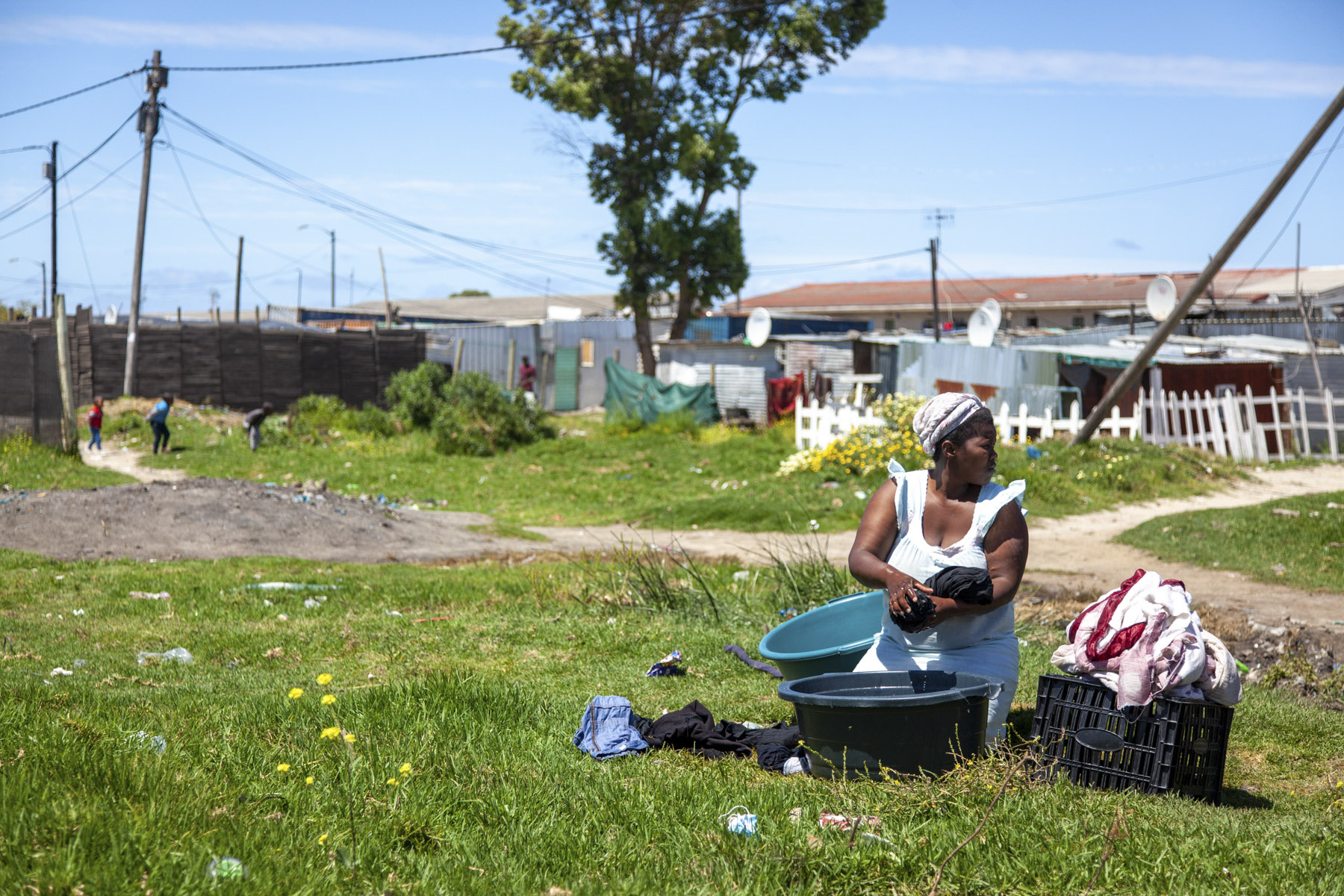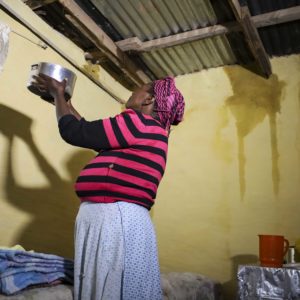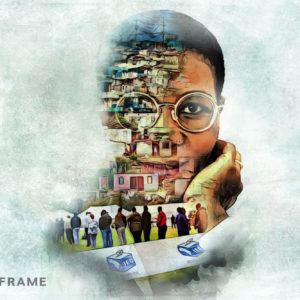Shack settlements need to be designed around women
Women want to engage with the government when it comes to the supply of municipal services and listening to them will make these spaces safer and healthier for all residents.
Author:
2 November 2021

Women’s Month came and went in August with the government’s usual array of speeches about eliminating gender inequality and protecting women. But this annual tradition has yet to result in meaningful change, particularly for the millions of women who live under harsh conditions in shack settlements.
These women continue to bear the brunt of the government’s failure to provide municipal services and it affects their health and safety daily.
There are about 10 million shack residents in settlements in and around South Africa’s major cities, with little or no access to water, sanitation or electricity. Asivikelane, a national community-based initiative that monitors municipal service provision, engages with more than 2 450 residents in 373 shack settlements. Its data show that women are primarily responsible for collecting water. They wait in long queues several times a day to ensure that their households have enough water for drinking, cleaning and cooking. As one Asivikelane participant said, “It can take up to three hours when the line is very long.”
Most shack settlements do not have enough taps to meet the needs of residents, and municipalities respond slowly to broken taps; 45% of residents say that when a tap or toilet breaks it is never repaired. This exacerbates the issue of services supply and increases the burden on residents.
Related article:
The time that women spend collecting water limits the time they have available for other things, such as seeking work. For those who are employed, collecting water is particularly burdensome. “Sometimes it’s not safe to fetch water late at night when I knock off from work, or early in the morning before going to work,” said one resident. “The time of the day matters as it affects our safety. Working moms need to find a way to collect enough water during the day.”
The toilets that municipalities provide are communal and often poorly located. Asivikelane’s latest data show that 82% of residents share a toilet among five or more households. In this environment, access to sanitation is as much about safety as it is about health. A young woman from a Cape Town shack settlement described the daily risk she faces: “We become a target to get robbed. Robbers hide in toilets and it’s worse at night. Crime takes place at the toilets because they’re in isolated locations and far from homes, so there’s no real surveillance.”
Three-quarters of the women who participate in Asivikelane report feeling unsafe using communal toilets at night, while a quarter feel unsafe doing so during the day. Walking to the toilet at night is dangerous and 84% of residents say there is not enough public lighting in their settlement. The toilet stalls are often poorly lit and many do not have locks on the doors. Women also face health hazards because the toilets are dirty and cleaned with harsh chemicals. “These toilets are poorly serviced. There is the overspilling of sewage, which makes us more susceptible to infections,” said one resident. Because young children need their mothers to accompany them to the toilet, these women use the communal toilets more frequently, increasing their exposure to risk.
Contractors and tenders
Despite the vital roles women play in their communities and the dangers that they face, they are not consulted when it comes to making decisions related to municipal services. The policy framework for shack settlements in South Africa makes no mention of women’s needs and municipalities have not done enough to include women in the planning processes. This gap in policy and practice has major repercussions for women’s welfare. It is a missed opportunity for the government to achieve gender inclusion.
As a country with an exceptionally high rate of gender-based violence, South Africa has to take active steps to protect women. Safer and healthier access to municipal services is one way of doing that. This requires prioritising womens’ needs when planning to install such services. More public lighting, taps and toilets, and installing services closer to homes are practical steps that directly affect the wellbeing of women.
Related podcast:
An estimated 40% of municipal services in shack settlements are provided through contractors, which the municipalities appoint through a procurement process. The tender specifications for these contracts determine the type and location of services delivered, and residents are rarely included in this process. The government is notoriously weak at monitoring service providers and residents pay the price. “Our safety should not be affected by procurement backlogs where we end up having toilets not being cleaned for some months,” said one resident. “There must be a plan to clean toilets from January till the end of the year.”
The government typically focuses on women-owned businesses when promoting gender-inclusive procurement. Far less emphasis is placed on creating procurement processes that include the voices and needs of the women who will use these services. The benefits of consulting these women would be far-reaching, because shack settlements designed for women are safer and healthier for all residents.
Voices drowned out
The national government’s shack settlement upgrading policy recognises the need for community participation, but it is largely gender-blind. It does not consider that such settlements are spaces where male voices typically dominate. This bias is clear during community engagements, where men assume positions of authority and become the voice for all. This can be disempowering for women and lead to outcomes that do not respond to their priorities.
The government can enable women by thoughtfully and intentionally including them in the design and planning of shack settlements. This would strengthen women’s agency and could address some of the gender inequalities linked to urban poverty.
Gender-inclusion should not be an add-on to existing practice, it should be central to it. The government can begin taking steps toward gender-inclusive policies and budgets by speaking to women in shack settlements or the participants in initiatives such as Asivikelane.
Data show that women want to engage with the government on these decisions: close to 70% of residents who participate in Asivikelane are women. They are active in pursuing their right to safe, reliable services for the community and they want to play a role in improving their living conditions. But they need the government to do its part. As one resident implored, “We are also people and we deserve to live in clean and safe areas.”


